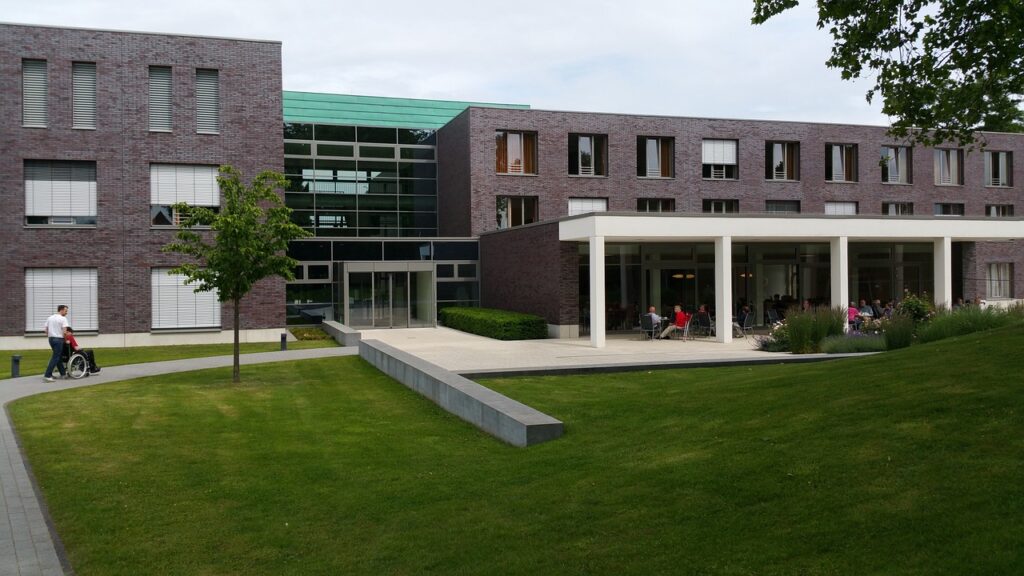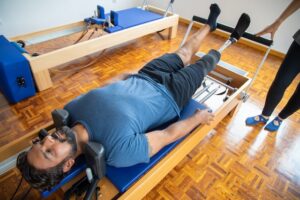
Embarking on the journey from darkness to light is a profound transformation that many individuals struggling with addiction face. It’s a path filled with challenges, self-discovery, and, ultimately, hope. In this blog post, we will delve into the impact of addiction rehabilitation – exploring the stages of treatment and recovery, the power of self-exploration and healing, as well as the importance of seeking help and acceptance along the way. Join us on this enlightening exploration of overcoming addiction and embracing a brighter future.
Treatment and Recovery
 Treatment and recovery are essential steps on the path to overcoming addiction. Seeking professional help is often the first courageous decision individuals make in their journey toward healing. Whether through therapy, medication-assisted treatment, or support groups, there are various avenues for individuals to explore in their quest for a sober life. Recovery is not a linear process; it’s a series of ups and downs, victories and setbacks. It requires patience, commitment, and resilience to navigate the challenges that may arise along the way. Many rehab centers and support groups are available to help individuals at every stage of their recovery journey. If you are interested, you should research. Addiction Rehabilitation Center Near You.
Treatment and recovery are essential steps on the path to overcoming addiction. Seeking professional help is often the first courageous decision individuals make in their journey toward healing. Whether through therapy, medication-assisted treatment, or support groups, there are various avenues for individuals to explore in their quest for a sober life. Recovery is not a linear process; it’s a series of ups and downs, victories and setbacks. It requires patience, commitment, and resilience to navigate the challenges that may arise along the way. Many rehab centers and support groups are available to help individuals at every stage of their recovery journey. If you are interested, you should research. Addiction Rehabilitation Center Near You.
Self-Exploration and Healing
Embarking on the journey of self-exploration and healing is a courageous step toward breaking free from the chains of addiction. It’s about delving deep into our inner selves, confronting our fears, insecurities, and past traumas that may have fueled our addictive behaviors. Self-exploration involves peeling back the layers we’ve built around ourselves to uncover our authentic selves buried beneath. It requires honesty, vulnerability, and a willingness to face discomfort head-on. Healing begins when we acknowledge the pain we’ve been carrying and actively work towards addressing it. It’s a process that demands patience, self-compassion, and sometimes seeking support from therapists or support groups.
Seeking Help
When faced with the overwhelming grip of addiction, seeking help can be a beacon of hope in the darkness. It takes courage to acknowledge that you cannot fight this battle alone. Asking for help is not a sign of weakness but rather a display of strength and determination. Reaching out for support from professionals, friends, or support groups can provide invaluable guidance and encouragement on your journey toward recovery. Remember, you are not alone in this struggle. People are ready and willing to offer assistance and compassion along the way. Embrace the opportunity to open up about your struggles and fears.
Acknowledgment and Acceptance
 Acknowledgment and acceptance are crucial steps in the journey towards overcoming addiction. It involves facing the reality of one’s struggles and taking responsibility for them. Acknowledging that there is a problem is the first step towards seeking help and making positive changes. Acceptance requires embracing both the good and the bad parts of oneself, including past mistakes and current challenges. It involves letting go of denial and being open to receiving support from others. By acknowledging our vulnerabilities, we can start to heal from within.
Acknowledgment and acceptance are crucial steps in the journey towards overcoming addiction. It involves facing the reality of one’s struggles and taking responsibility for them. Acknowledging that there is a problem is the first step towards seeking help and making positive changes. Acceptance requires embracing both the good and the bad parts of oneself, including past mistakes and current challenges. It involves letting go of denial and being open to receiving support from others. By acknowledging our vulnerabilities, we can start to heal from within.
Remember, you are not alone on this journey. There are resources available to help you every step of the way. Reach out for help, take that leap of faith toward recovery, and embrace the possibilities that lie ahead. The road may be challenging at times, but there is always hope for a better tomorrow. So, take each day as it comes; stay committed to your recovery, believe in yourself, and never lose sight of the light at the end of the tunnel. This journey may have its ups and downs, but remember – from darkness to light – there is always a way forward towards healing and transformation.…


 Physical rehabilitation helps patients regain strength and mobility after an injury or illness. Physical therapists use exercises and massage to help patients recover from surgery, a broken bone, or a debilitating disease. It requires a lot of hard work, but physical rehabilitation can help patients regain their quality of life. If you or a loved one is dealing with an injury or illness, seek the help of a physical rehabilitation professional. They can help you get your strength and mobility back so you can live your life to the fullest.
Physical rehabilitation helps patients regain strength and mobility after an injury or illness. Physical therapists use exercises and massage to help patients recover from surgery, a broken bone, or a debilitating disease. It requires a lot of hard work, but physical rehabilitation can help patients regain their quality of life. If you or a loved one is dealing with an injury or illness, seek the help of a physical rehabilitation professional. They can help you get your strength and mobility back so you can live your life to the fullest. Speech rehabilitation helps patients regain the ability to communicate. Speech therapists help patients relearn how to speak clearly and pronounce words correctly. For some patients, speech rehabilitation is the key to regaining their quality of life. The patient’s family and friends can also benefit from speech rehabilitation, as it can help them communicate more effectively with the patient. If you or a loved one are struggling to communicate, seek speech rehabilitation services. Speech therapists can help you regain the ability to communicate clearly and effectively.
Speech rehabilitation helps patients regain the ability to communicate. Speech therapists help patients relearn how to speak clearly and pronounce words correctly. For some patients, speech rehabilitation is the key to regaining their quality of life. The patient’s family and friends can also benefit from speech rehabilitation, as it can help them communicate more effectively with the patient. If you or a loved one are struggling to communicate, seek speech rehabilitation services. Speech therapists can help you regain the ability to communicate clearly and effectively.